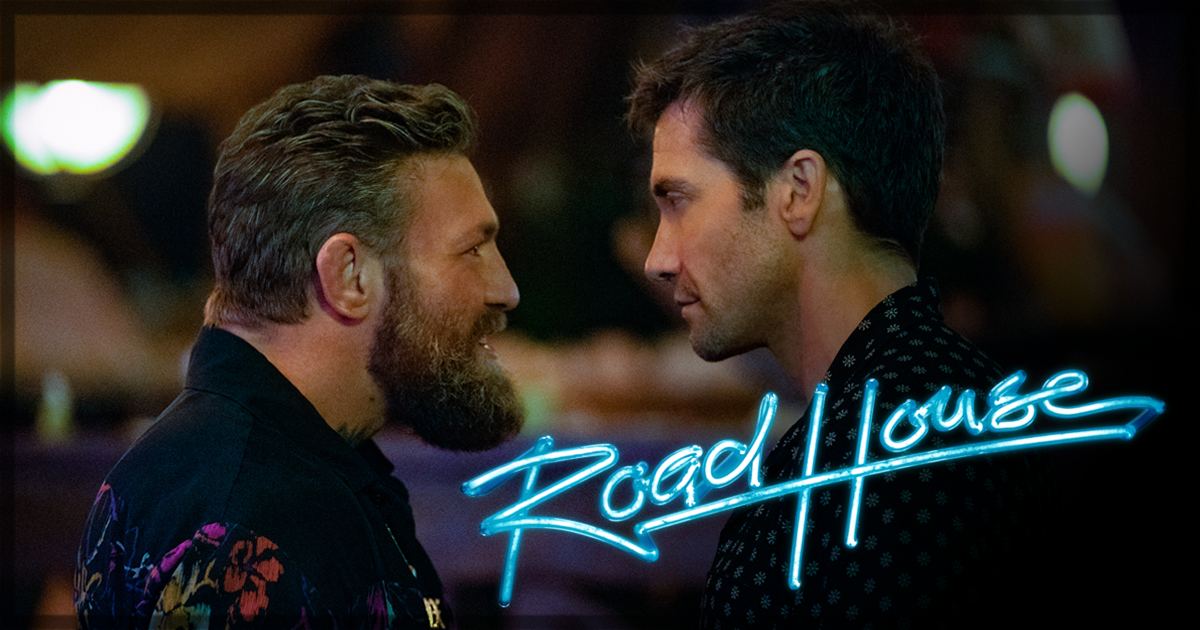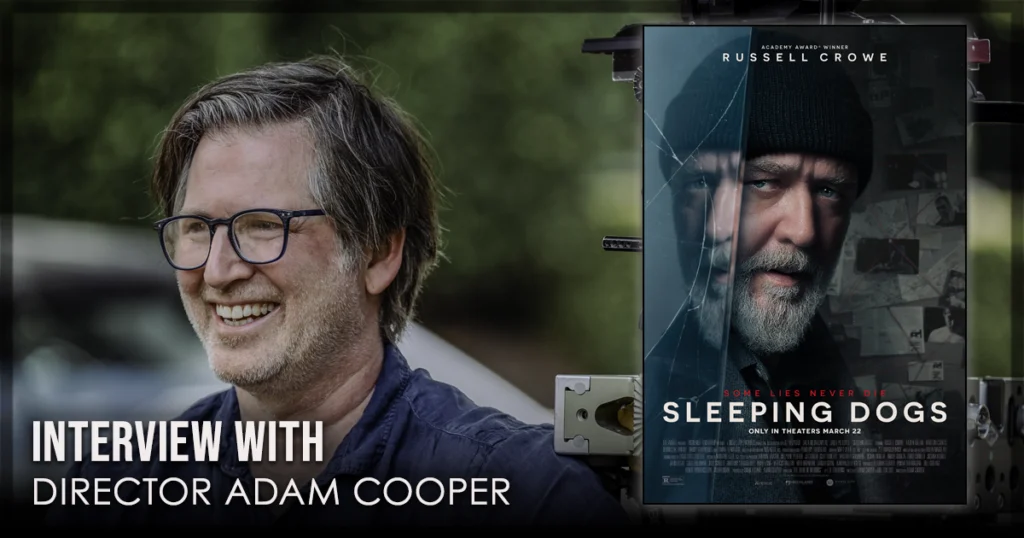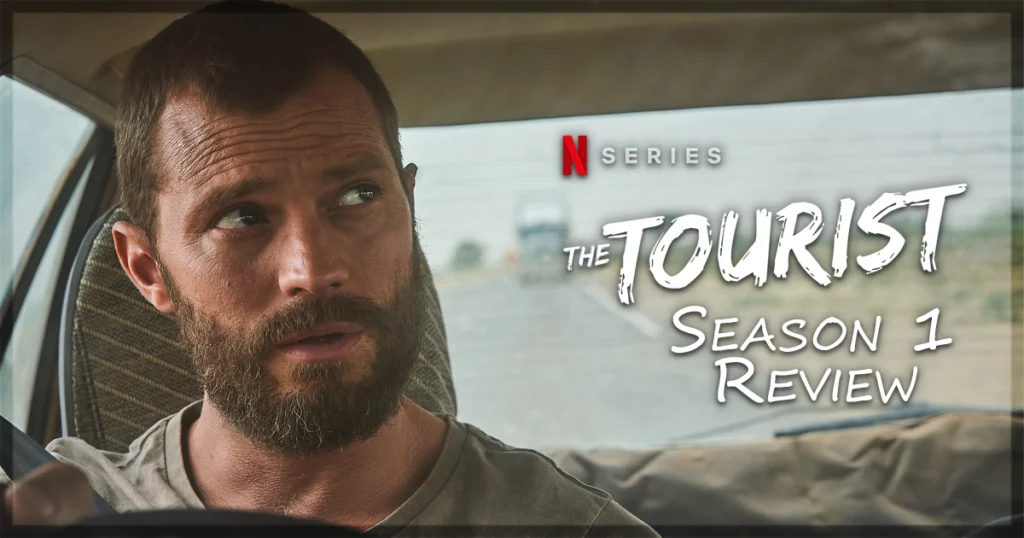Road House, from director Doug Liman and starring Jake Gyllenhaal is now streaming.
Should we compare remakes to the original? This central question guides most film critics when they compare a modernized version of a popular film made decades ago. Some say we shouldn’t hold the original as the only good film and scrupulously examine the newer one to see if it matches the original’s vision, while others believe we need to posit the remake through the lens it’s made now. Of course, no two movies are the same, even if they borrow the same ideas or adapt old source material to a fresher, more progressive lens.
However, Rowdy Herrington’s Road House is one of the most exhilarating, adrenaline-fueled actioners of the 1980s – a bare-knuckled, hypermasculine, self-deprecating trip down the nadir of America with career-best turns from Patrick Swayze and Ben Gazzara. Masterfully shot by Dean Cundey, Herrington captures a surreal vision of a conservative portion of America through the Western legend of Dalton (Swayze) and his brotherly friendship with his mentor, Wade Garrett (Sam Elliott), as they are tasked to whip up the Double Deuce into place from the iron fist of Brad Wesley (Gazzara).
Herrington knew that Swayze’s incredible charm infused with incredibly tactile action would be a smash hit, and it overcame a middling critical reception from reviewers who might not have grasped it in the third degree. The film gained wider appreciation over time, and a cult following was born, which is the only reason why Amazon officially greenlit the remake in 2022 with Doug Liman and Jake Gyllenhaal headlining. Without its rabid fanbase that made Road House such a staple of American action cinema, this film would never exist.
Jake Gyllenhaal and Patrick Swayze have a different sort of on screen charisma
Of course, Gyllenhaal can’t be compared to Swayze (and if you weren’t aware, the two crossed paths in Richard Kelly’s Donnie Darko). They both have different acting styles and ways to exude their charisma on screen. Swayze’s in-your-face masculinity was revolutionary not only in Road House but also in Emile Ardolino’s Dirty Dancing, Jerry Zucker’s Ghost, and Kathryn Bigelow’s Point Break. As charming as Gyllenhaal may be, he’ll never match Swayze, and it would be ridiculous to put the two on the same pedestal.
Liman was smart not to turn Gyllenhaal’s Dalton into Swayze’s Dalton and reinterpret the character for an action style that fits Gyllenhaal’s capabilities. However, he also makes cardinal mistakes early on by removing the aura of mystery that Dalton embodied in the original. He gives him a backstory as a retired UFC middleweight who now lives in his car and scams underground fighters by showing up and not fighting them. We eventually learn that a fatal accident during a fight stained his career and reputation, with Dalton contemplating suicide, thinking there would be no easy way out of his troubles.
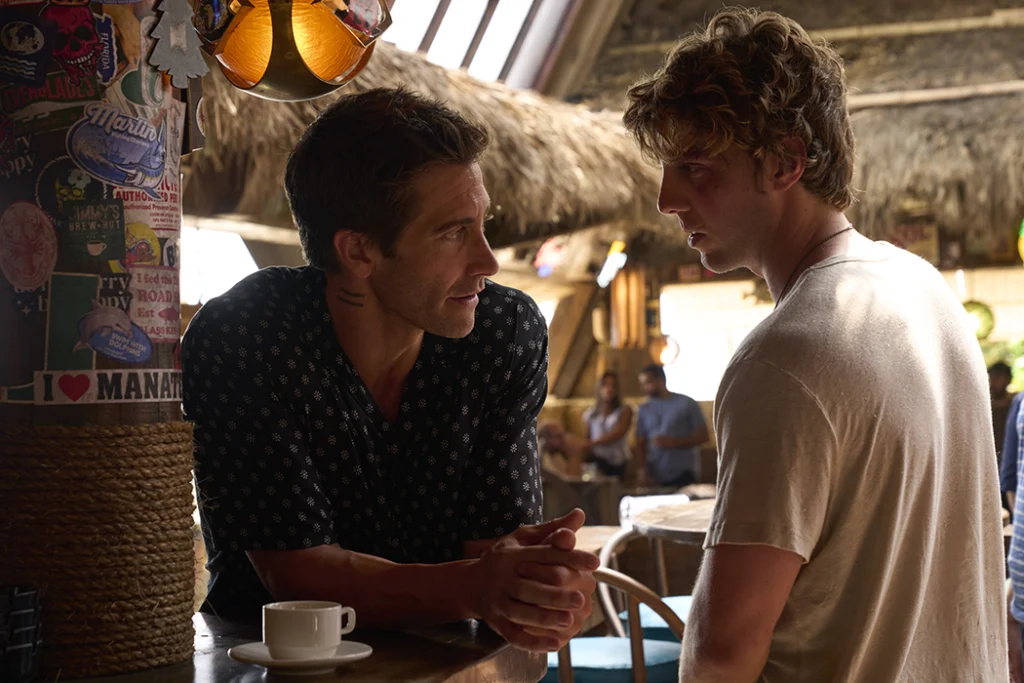
Already, the mystery is gone by giving Dalton any form of backstory, while Swayze’s Dalton had no backstory. Dalton was the backstory. As soon as he walks into the Double Deuce, people start talking: “Do you see who it is? It’s Dalton!” without the audience seeing exactly what he can do. Only when he begins fighting patrons at the bar do we finally realize he is the real deal — and means business (even when he is nice…until it is time not to be nice). This aura is never matched in Liman’s version, attempting to humanize a legend that shouldn’t otherwise be: all we should know about Dalton is minimal until he starts to kick ass.
This makes Road House’s first action set piece, in which he slaps a bunch of goons to oblivion, less impactful than when Dalton first begins to whip baddies into shape in Herrington’s film. It also doesn’t help that Henry Braham’s cinematography tries too hard to emulate Dion Beebe’s groundbreaking digital photography in Michael Mann’s feature adaptation of Miami Vice, with CGI-stitched pans and ultra-wide shots that attempt to create a ‘visceral’ fighting style but is far more disorienting than it is kinetic.
This style not only hampers the film as a whole, with many ultra-textured shots feeling more like an exercise in style than good image-making, but also the action scenes. Say what you will about the original Road House, but Cundey knew how to shoot action. The corkscrew car explosion hasn’t left my memory from the moment I saw the film for the first time. I saw the new movie a day before the writing of this review and do not remember how the action scenes were staged or, worse, an image of note. Even some of the coolest moments, where an assailant is eaten alive by a crocodile, or practical moves from Gyllenhaal and Conor McGregor, feel reduced by Braham’s overly expressive style.
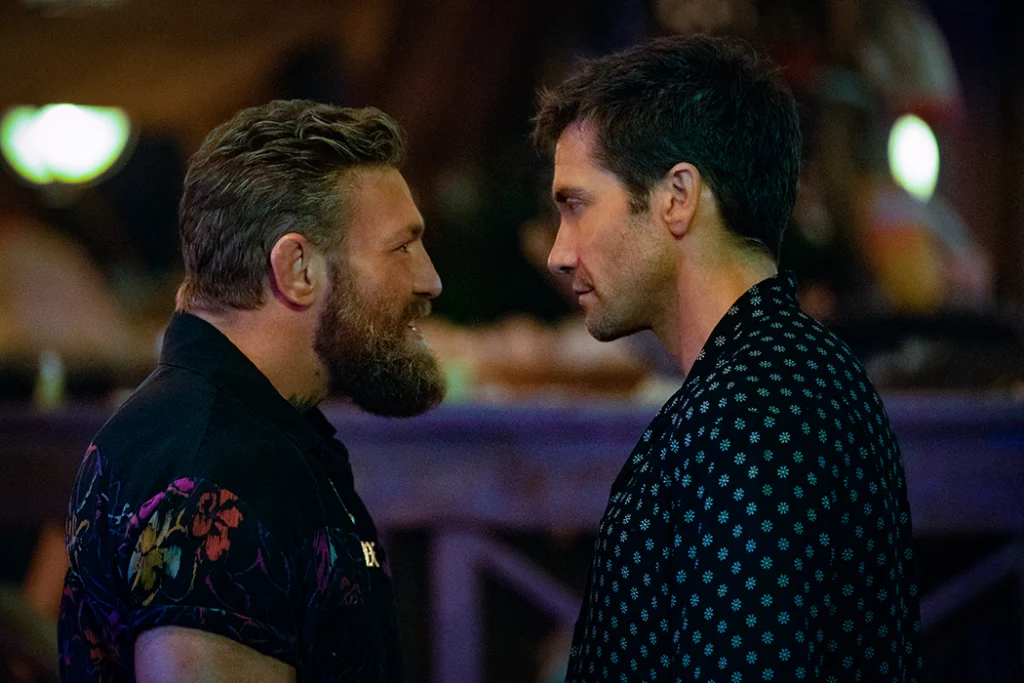
The key of the original Road House (and, to an extension, even its direct-to-video sequel, Road House 2: Last Call) was simply executed but immensely scaled action. That’s why it feels so powerful when Dalton rips a guy’s throat out or when a car blows up in midair. Even Road House 2 has tight action, including one legendary bar brawl that ends with one guy toppling two, with impeccable stunt choreography from Sam Hargrave and JJ Perry. They’re rather simple executions but feel so powerful in the hands of its actors and cinematographers.
Liman seemingly has no sense of kinetics – the stunts are fine, but the way he shoots them is baffling. There’s a world in which a movie like this works, with a filmmaker like Michael Mann (or, even better, Michael Bay) behind the camera, as they understand the capabilities of digital filmmaking in a way that few action filmmakers do.
Liman, unfortunately, doesn’t have the juice and can’t produce an image that feels as alive as Herrington’s film. That’s a problem, but it’s even worse when the movie starts to take itself seriously. Road House’s stakes were serious, as a crime lord controls the city’s operations, with the Double Deuce being its last line of defense. But it never took itself seriously, which is why the lead actors could get away with saying the craziest things on paper. And it’s for that reason that the film is so memorable.
As soon as Road House takes a dark turn and Dalton becomes pissed off by its main antagonist, Benjamin Brandt (Billy Magnussen), who controls most of Glass Key, including a corrupt Sherriff (an underused Joaquim de Almeida) who won’t stand up for what’s right, since he gets paid a hefty sum to keep his mouth shut and look the other way, the film fizzles out even further. It’s not supposed to be serious, as elevated as the stakes may be. There always should be a lightly comedic tone permeating most of the action and story, but Liman and screenwriters Anthony Bagarozzi and Charles Mondry can’t keep the tone in one direction.
Should it be a self-aware comedic action flick with moments of dramatic power or an initial comedy that immediately shifts into a drama to culminate in an over-the-top action? Who knows, but this misunderstanding of the original’s tone is what predominantly sinks the movie since Gyllenhaal acts in the reality of the character, while Magnussen and McGregor (MMA fighter turned recent graduate of the Tommy Wiseau School of Acting) are in other planes of existence.

It also doesn’t help that the main romance between Dalton and Doc (played here by Daniela Melchoir) is completely sexless, devoid of any romantic tension or even chemistry. When Patrick Swayze and Kelly Lynch paired together in Herrington’s Road House, sparks more than flew. In Liman’s Road House, the romance immediately disappears when Ellie learns more about Dalton, whose character is then used for the film’s most inane plot twist. From there, the film never recovers, and its sparse moments are immediately forgotten in an overlong climax that blends unfinished visual effects with dizzying camerawork that’s never focused nor artistically inventive.
Road House has zero big screen appeal beyond Gyllenhaal’s charisma
Perhaps my expectations were sky high for Liman’s Road House, as a fan of the original, who will continuously defend the film’s imperfections as part of its initial appeal and moviegoing experience. But if you can’t get the basics of the appeal right, why should anyone care about this remake? No wonder Amazon decided to dump it unceremoniously on their streaming service instead of a theatrical release, to the disdain of Liman, who boycotted the film’s press tour in protest: it has zero big screen appeal, beyond the charisma of Gyllenhaal. He does a fine job here, but what’s the point of trying when everything else barely works?
Road House is now streaming on Prime Video.
Have you watched Road House yet? Let us know your thoughts on X @MoviesWeTexted.
You might also like…
‘Sleeping Dogs’ Interview with Writer and Director Adam Cooper
‘The Tourist’ Season 1 Review: An Irishman with Amnesia in the Outback

